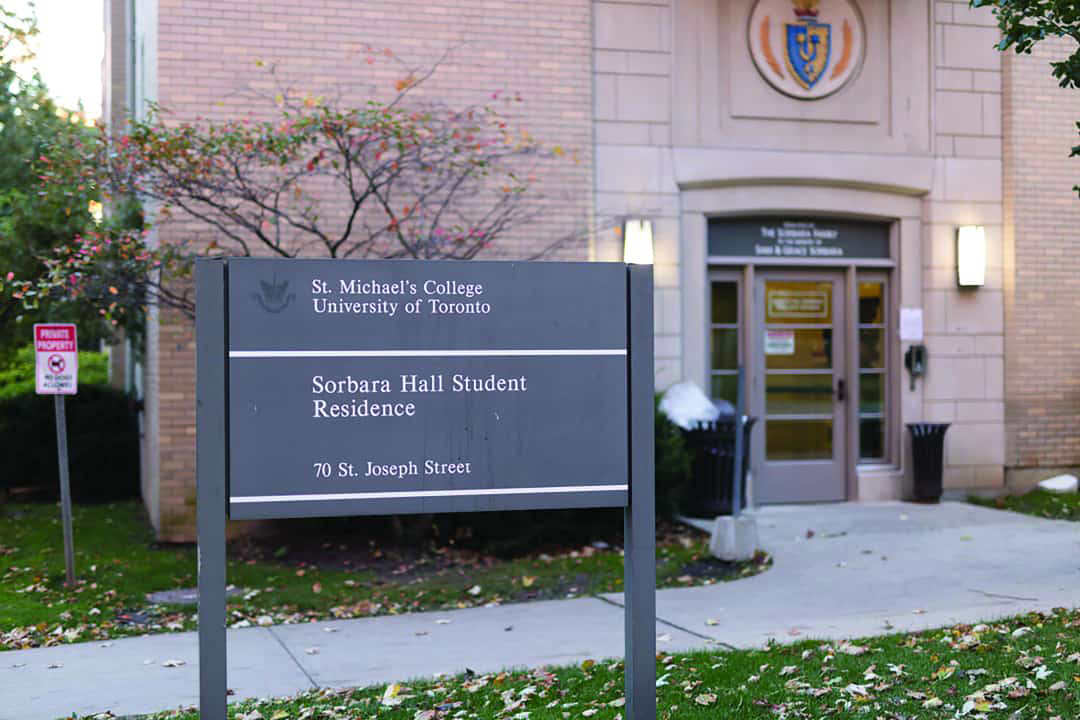Some U of T residences, including St. Michael’s College and Victoria College, are offering financial rebate packages to students who choose to delay their return to student residences until January 30. The package is in response to the sharp increase in COVID-19 infection cases in Toronto, with the university aiming to reduce the risk of potential outbreaks on campus.
For each full week that students postpone their return to St. Mike’s and Vic — up to January 30 — they will receive a $350 rebate. The reimbursement would be issued sometime in February — when the university currently plans on reopening in person — in order for the student’s on-campus status to be verified and confirmed.
There is no doubt that the introduction of the rebate will be at least somewhat effective in its goal, as there will most certainly be students who will take the rebate and avoid returning to campus. Thus, there would be fewer students on campus, which would, in turn, imply a smaller risk of a campus outbreak. However, the exact degree of the rebate’s efficacy is something that can still be debated.
The effectiveness of the rebate strategy largely depends on the demographic of students living in residence. Specifically, if the majority of students live in a time zone similar to Toronto’s, they will be more likely to delay their return, as they can easily take classes online regardless of where they are residing. In addition, local students unaffected by Canada’s new travel restrictions need not worry about potentially returning to campus late for the start of in-person classes in February. Hence, these students would also be able to delay their return to campus residence with greater peace of mind than international students who face more uncertainty.
On the other hand, students who reside in different time zones may have difficulty taking quizzes, attending classes, and participating in tutorials or labs — each of which would undoubtedly negatively impact their marks. Thus, they may be less likely to delay their return, regardless of the prospect of a rebate. Similarly, international students who fear being stuck in their home countries due to the everchanging COVID-19 restrictions may not want to take the risk of booking a later flight to Toronto only to run into issues.
Furthermore, although offering the rebate during the winter break allowed many students to extend their stay at home, announcing it somewhat late into the break acted as a double-edged sword. Some students had already bought their plane tickets to return and thus may have had to forfeit the rebate.
It can also be argued that the prospect of a rebate is unfair, as it is not a full reimbursement of each week’s calculated cost. Taking the example of St. Mike’s; for a single room with a seven-day meal plan at Sorbara Hall, students would be paying $16,762 for the full academic year. As the academic year is roughly 33 weeks long, this would come out to an estimated cost of about $507.94 per week. This demonstrates that the rebate — $350 per week — would not cover the true cost of a week in residence.
This disparity itself could also hinder the effectiveness of the policy, as many students and parents would not want to feel as though they are not receiving their money’s worth, invoking the phenomenon known as the ‘sunk cost fallacy.’ This phenomenon details how individuals may continue on their planned path even if it isn’t working out, as they believe they have already invested too heavily in it.To make the policy more effective and fair, St. Mike’s and Vic could have considered refunding the true cost per week to students, rather than a portion of it. Similarly, they could have provided week-by-week reimbursements rather than waiting until February to give students their rebates.
From December 22 on, students had to leave residences, and unless they were returning home, would have had to find alternative housing until the university opened up again. By providing weekly reimbursements — if not advancements — these students would have been able to continue getting by until they can safely return to campus. This strategy would have ultimately reinforced the university’s goal of mitigating the risk of COVID-19-related outbreaks.
Nina Uzunović is a first-year social sciences student at Trinity College. She is an associate comment editor at The Varsity.
Editor’s Note (January 24): An earlier version of the article said that, in contrast to Victoria College, St. Michael’s College is capping the rebate offered to students who do not return in January at $700. However, St. Michael’s College is offering a total of $1,150 to students who return between January 30 and February 5.


